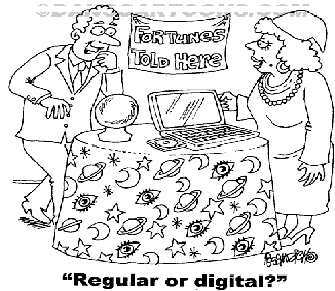 For part of their research they asked participants whether they consulted horoscopes, and if so how often; they also asked whether they had tried fortune telling, tarot or astrology; and complementary or alternative medicine, herbal remedies, homeopathy or aromatherapy and practices such as yoga or meditation. Participants were then asked whether they found these things very important, quite important, not very important, or not at all important.
For part of their research they asked participants whether they consulted horoscopes, and if so how often; they also asked whether they had tried fortune telling, tarot or astrology; and complementary or alternative medicine, herbal remedies, homeopathy or aromatherapy and practices such as yoga or meditation. Participants were then asked whether they found these things very important, quite important, not very important, or not at all important.
They found that 64% of participants had consulted horoscopes in newspapers or magazines and 5% of these had found horoscopes in the media very important in their lives. In addition, 30% said they had tried fortune telling, tarot or astrology and 6% per cent of these had found them very important. Also, 44% said they had taken part in alternative/complementary medicine, herbal remedies, homeopathy, aromatherapy and 20% found them important.
The findings demonstrate that a large number of participants read horoscopes and have tried other ways of predicting the future such as astrology or tarot reading. Even though only a small amount of these participants found them very important within their lives, the findings do demonstrate that not everyone reads horoscopes purely for entertainment. The findings also found that women were more likely to read horoscopes than men and that younger and less educated women are more likely to find horoscopes, astrology, fortune-telling and tarot more important in their lives, than better educated women who are more likely to take part in holistic practices.
I am unsure why more educated women take part in holistic practices compared to less educated women. Maybe better educated women have more of an opportunity to take part and learn more about holistic practices such as yoga or aromatherapy? However, I suggest that young women may be more interested in horoscopes compared to older women because young women are more uncertain about different areas of their lives, which many older women have already gone through.
I agree with Glendinning and Bruce that the findings also reinforce the difference between alternative practices such as yoga, meditation and aromatherapy compared to horoscopes. It is clear that alternative practices are concerned with personal well-being, healing and working on ‘improving’ the self; whereas horoscopes and astrology are more about divination and the desire to know about and reveal the future. Consequently, ways of predicting the future allow people to find meaning within their lives because it gives them the opportunity to understand more about their future, unlike alternative practices such as yoga or meditation. However, I also agree with Gilbert that some horoscopes also offer advice on how we can become happier or how our life can be improved. As Gilbert says: ‘The horoscope interpreted by a skilled astrologer not only provides a synthetic picture of the person’s hereditary inclinations, but points to latent potentials, and suggests directions of needed growth. It gives a symbolic map of the process of self-realisation.’ However, if people read horoscopes to find meaning within their lives what are they lacking? Also, what does this say about their views regarding the future?









